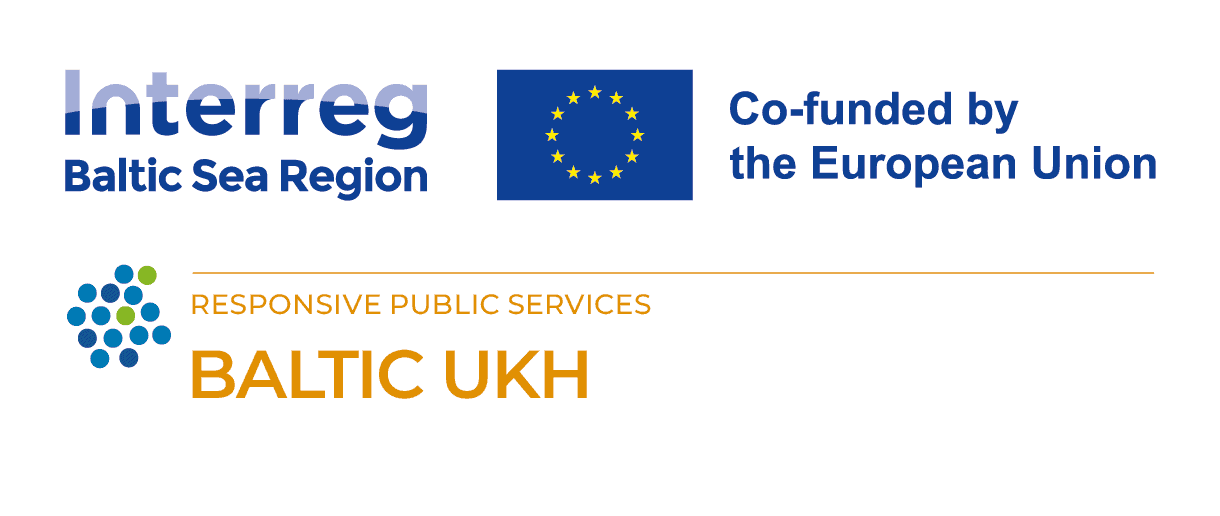Urban Knowledge Hubs; Co-creation, digital literacy and hybrid spaces
Project: BALTIC UKH
Physical Meeting
11. - 12. June 2025
00:00 - 23:59 (BST)

Discover our 4C Toolbox!
We are excited to unveil our online 4C Toolbox – Engaging Users to Transform Public Spaces and Services: A Guide to Participatory Innovation. Fillable 4C Toolbox Templates (PDF)
The toolbox offers a structured approach to creating Urban Knowledge Hubs – dynamic, multifunctional spaces that foster collaboration, learning, and innovation.
To help you get started, you can download 4C Toolbox posters – inspiration maps available in six languages: English, Danish, German, Latvian, Norwegian, and Polish.
Enjoy the read!
The EU project BALTIC UKH responds to the growing need for spaces and services across the Baltic Sea Region enabling citizens to access and exchange reliable and comprehensible information, thereby fighting disinformation and propaganda.
Currently, we experience a lack in spaces and services tailored to the needs of their end-users, often because their voices are not included in the design process. Although the importance of co-creation activities has become more evident, there is a lack in standards or shortcuts.
To tackle this challenge, the project partners together with the Associated Organizations have developed a research-based toolbox for the participatory design of hybrid and flexible informational spaces using the idea of “Urban Knowledge Hubs” as a new space concept.
Said hubs represent innovative local learning and meeting places interconnected in global information networks, supporting citizens in becoming digitally literate and well-informed. At their core, UKHs foster social innovation since target groups are engaged during their design and implementation as well as ongoing evaluation processes after their initialization.
By offering the toolbox to libraries as well as other public information and services providers, our output will continuously increase the capacity of public institutions to set up their own co-creation processes. Therefore, the 4C toolbox (focusing on co-creation, co-design, co-production and co-evaluation) entails a step-by-step framework, suitable for different contexts, target groups and levels of experience with participatory processes.
The collaboration within this Interreg Baltic Sea Region project has helped to create an output adaptable for the needs of public authorities in urban and rural areas, as well as NGOs and higher education institutions. It includes best practices and has been made publicly available in five languages. With this, we hope to increase the quality of informational spaces and services thereby empowering citizens to become well-informed, while simultaneously increasing user engagement in the development of future communal spaces and services.
Interactive map showing pilot locations. Use the arrow keys to move the map view and the zoom controls to zoom in or out. Press the Tab key to navigate between markers. Press Enter or click a marker to view pilot project details.